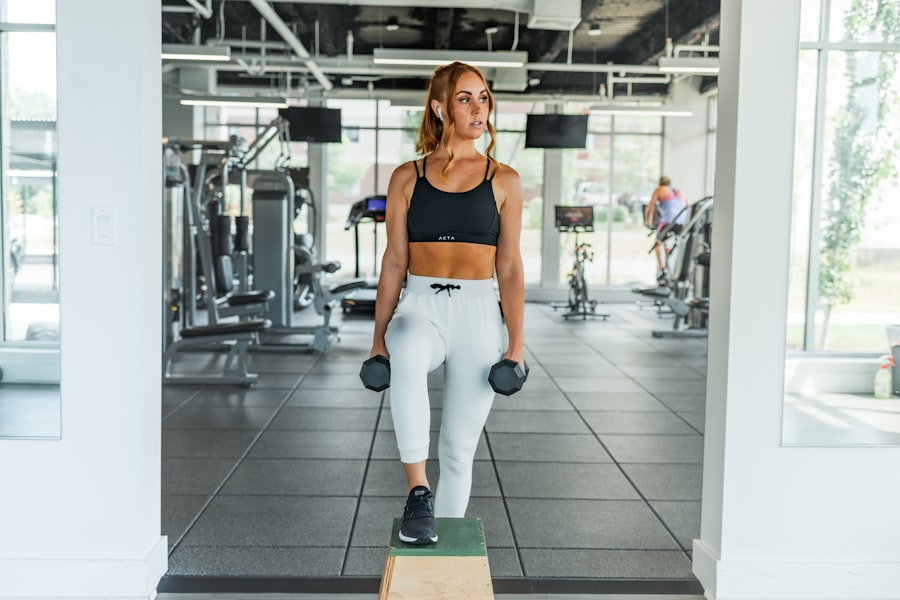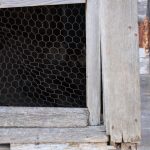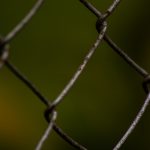Proper nutrition is essential for the health and well-being of backyard chickens. A balanced diet ensures that chickens receive the necessary nutrients to support their overall health, egg production, and immune system. A good quality commercial feed formulated specifically for laying hens is a great foundation for their diet.
This feed should contain a balanced mix of protein, carbohydrates, fats, vitamins, and minerals. In addition to commercial feed, chickens can also benefit from supplemental treats such as fruits, vegetables, and grains. It’s important to provide a variety of treats to ensure that chickens receive a diverse range of nutrients.
However, it’s crucial to avoid feeding them foods that are toxic to chickens, such as avocado, chocolate, and raw beans. In addition to a balanced diet, access to clean and fresh water is crucial for chickens’ health. Chickens require a constant supply of water to stay hydrated, regulate their body temperature, and aid in digestion.
Water should be provided in clean containers that are free from contaminants and regularly checked to ensure they are not clogged or dirty. Proper nutrition also includes providing access to grit and oyster shell. Grit helps chickens grind their food in their gizzards, while oyster shell provides calcium to support strong eggshells.
By ensuring that chickens have access to a balanced diet, clean water, grit, and oyster shell, backyard chicken owners can help promote the overall health and well-being of their flock.
Table of Contents
- 1 Clean and Comfortable Living Conditions
- 2 Regular Veterinary Check-ups
- 3 Parasite Prevention
- 4 Exercise and Enrichment
- 5 Monitoring Egg Production
- 6 Quarantine and Biosecurity Measures
- 7 FAQs
- 7.1 What are some common health issues that can affect egg laying chickens?
- 7.2 How can I prevent respiratory infections in my egg laying chickens?
- 7.3 What are some signs of a healthy egg laying chicken?
- 7.4 How can I prevent egg binding in my egg laying chickens?
- 7.5 What should I include in a balanced diet for egg laying chickens?
Key Takeaways
- Proper nutrition is essential for the health and well-being of your poultry, so ensure they have access to a balanced diet with the right mix of nutrients.
- Clean and comfortable living conditions are crucial for preventing diseases and promoting overall health, so keep their living area clean and well-maintained.
- Regular veterinary check-ups are important for monitoring the health of your poultry and addressing any potential issues early on.
- Parasite prevention is key to keeping your poultry healthy, so implement a regular parasite control program as recommended by your veterinarian.
- Exercise and enrichment are important for the physical and mental well-being of your poultry, so provide opportunities for them to move around and engage in natural behaviors.
Clean and Comfortable Living Conditions
Importance of Cleanliness
Creating clean and comfortable living conditions is essential for the health and well-being of backyard chickens. A clean coop helps prevent the spread of diseases and parasites, while also providing a comfortable environment for chickens to thrive. Regular cleaning of the coop, nesting boxes, and roosting areas is crucial to maintain cleanliness. This includes removing soiled bedding, droppings, and any leftover food or treats.
Ventilation and Air Quality
Coops should also be well-ventilated to ensure good air circulation and prevent the buildup of ammonia from chicken droppings. Proper ventilation helps reduce moisture levels in the coop, which can lead to respiratory issues in chickens.
Space and Comfort
In addition to cleanliness, providing comfortable living conditions also involves ensuring that chickens have enough space to move around and engage in natural behaviors. Overcrowding can lead to stress, aggression, and an increased risk of disease transmission. Chickens should have access to outdoor space for foraging and dust bathing, as well as perches for roosting. Nesting boxes should be clean, comfortable, and located in a quiet area to encourage egg laying. By maintaining clean and comfortable living conditions, backyard chicken owners can help promote the overall health and well-being of their flock.
Regular Veterinary Check-ups

Regular veterinary check-ups are an important aspect of maintaining the health and well-being of backyard chickens. While chickens are generally hardy animals, they are still susceptible to various health issues that can benefit from professional veterinary care. Routine check-ups with a poultry veterinarian can help identify and address any potential health concerns before they escalate into more serious problems.
During these check-ups, the vet can conduct physical examinations, check for signs of illness or injury, and provide guidance on preventative care measures. In addition to routine check-ups, it’s important for backyard chicken owners to be vigilant about monitoring their flock for any changes in behavior or appearance that may indicate a health issue. This includes observing their eating and drinking habits, egg production, mobility, and overall demeanor.
Any abnormalities should be promptly addressed with the help of a qualified veterinarian. By prioritizing regular veterinary check-ups and staying proactive about monitoring their flock’s health, backyard chicken owners can help ensure that their chickens receive the care they need to stay healthy and happy.
Parasite Prevention
Parasite prevention is crucial for maintaining the health and well-being of backyard chickens. Chickens are susceptible to various parasites such as mites, lice, fleas, and worms that can negatively impact their health and egg production. Regularly inspecting chickens for signs of parasites such as feather loss, irritation, or lethargy can help identify infestations early on.
In addition to visual inspections, preventative measures such as regular coop cleaning, dust baths, and providing access to diatomaceous earth can help deter parasites from infesting the flock. In addition to external parasites, internal parasites such as worms can also pose a threat to chickens’ health. Regular deworming treatments prescribed by a veterinarian can help prevent and control internal parasite infestations.
It’s important for backyard chicken owners to work with a qualified veterinarian to develop a parasite prevention plan tailored to their flock’s specific needs. By prioritizing parasite prevention measures, backyard chicken owners can help safeguard the health and well-being of their flock.
Exercise and Enrichment
Providing opportunities for exercise and enrichment is essential for promoting the physical and mental well-being of backyard chickens. Chickens are naturally active animals that enjoy foraging, dust bathing, and exploring their environment. Access to outdoor space where they can engage in natural behaviors is crucial for their overall health and happiness.
Backyard chicken owners can create enriching environments by providing opportunities for chickens to scratch for insects, peck at grasses and plants, and dust bathe in dry soil or sand. In addition to physical exercise, mental stimulation is also important for chickens’ well-being. Providing environmental enrichment such as perches, hanging treats or toys, and novel objects can help keep chickens mentally engaged and prevent boredom.
Enrichment activities can also help reduce stress and aggression within the flock by providing outlets for natural behaviors. By prioritizing exercise and enrichment opportunities for their flock, backyard chicken owners can help promote the overall health and well-being of their chickens.
Monitoring Egg Production

Identifying Potential Health Issues
Monitoring egg production is crucial for maintaining the health and well-being of backyard chickens. By keeping track of egg production, you can gain valuable insights into the overall health of your flock. A sudden decrease in egg production or changes in egg quality can indicate underlying health issues such as stress, illness, or nutritional deficiencies.
Early Intervention and Prevention
Regular monitoring of egg production enables backyard chicken owners to identify potential issues early on and take appropriate measures to address them. In addition to monitoring egg production, it’s essential to ensure that eggs are collected promptly to prevent damage or consumption by the chickens.
Best Practices for Egg Collection
Proper egg collection practices not only help maintain the quality of the eggs but also reduce the risk of egg-related health issues such as egg eating or broodiness. By staying vigilant about monitoring egg production and implementing proper egg collection practices, backyard chicken owners can help maintain the health and well-being of their flock.
Quarantine and Biosecurity Measures
Implementing quarantine and biosecurity measures is crucial for preventing the spread of diseases within a backyard chicken flock. Introducing new birds into an existing flock without proper quarantine measures can pose a significant risk of disease transmission. Quarantining new birds for a period of at least 30 days allows for observation of any potential signs of illness before they are introduced to the existing flock.
During this time, new birds should be housed separately from the existing flock with separate equipment and caretaking practices. In addition to quarantine measures, biosecurity practices such as limiting visitor access to the coop area, disinfecting equipment and footwear before entering the coop, and preventing contact with wild birds can help reduce the risk of disease transmission. By prioritizing quarantine and biosecurity measures, backyard chicken owners can help protect the health and well-being of their flock by minimizing the risk of disease outbreaks.
In conclusion, maintaining the health and well-being of backyard chickens requires a comprehensive approach that encompasses proper nutrition, clean living conditions, regular veterinary care, parasite prevention, exercise and enrichment opportunities, monitoring egg production, and implementing quarantine and biosecurity measures. By prioritizing these aspects of care, backyard chicken owners can help ensure that their flock remains healthy, happy, and thriving.
If you’re looking for tips on how to keep your egg laying chickens healthy, you may also be interested in learning about the importance of the floor of the chicken coop. A well-maintained coop floor is essential for the overall health and well-being of your chickens. Check out this article for more information on how to properly care for the floor of your chicken coop.
FAQs
What are some common health issues that can affect egg laying chickens?
Some common health issues that can affect egg laying chickens include respiratory infections, parasites (such as mites and lice), egg binding, and nutritional deficiencies.
How can I prevent respiratory infections in my egg laying chickens?
To prevent respiratory infections in egg laying chickens, it is important to provide a clean and well-ventilated coop, avoid overcrowding, and practice good biosecurity measures. Additionally, minimizing stress and ensuring a balanced diet can also help boost the immune system of the chickens.
What are some signs of a healthy egg laying chicken?
Signs of a healthy egg laying chicken include bright eyes, glossy feathers, a good appetite, and active behavior. Healthy chickens also produce eggs regularly and have a good overall body condition.
How can I prevent egg binding in my egg laying chickens?
To prevent egg binding in egg laying chickens, it is important to provide a balanced diet with adequate calcium, as well as ensuring that the chickens have access to clean water at all times. Additionally, providing nesting boxes with comfortable bedding can help reduce the risk of egg binding.
What should I include in a balanced diet for egg laying chickens?
A balanced diet for egg laying chickens should include a good quality layer feed that is specifically formulated for egg production. Additionally, providing access to fresh greens, fruits, and occasional treats such as mealworms can help supplement their diet. It is also important to provide access to grit and oyster shell for calcium supplementation.
Meet Walter, the feathered-friend fanatic of Florida! Nestled in the sunshine state, Walter struts through life with his feathered companions, clucking his way to happiness. With a coop that’s fancier than a five-star hotel, he’s the Don Juan of the chicken world. When he’s not teaching his hens to do the cha-cha, you’ll find him in a heated debate with his prized rooster, Sir Clucks-a-Lot. Walter’s poultry passion is no yolk; he’s the sunny-side-up guy you never knew you needed in your flock of friends!







